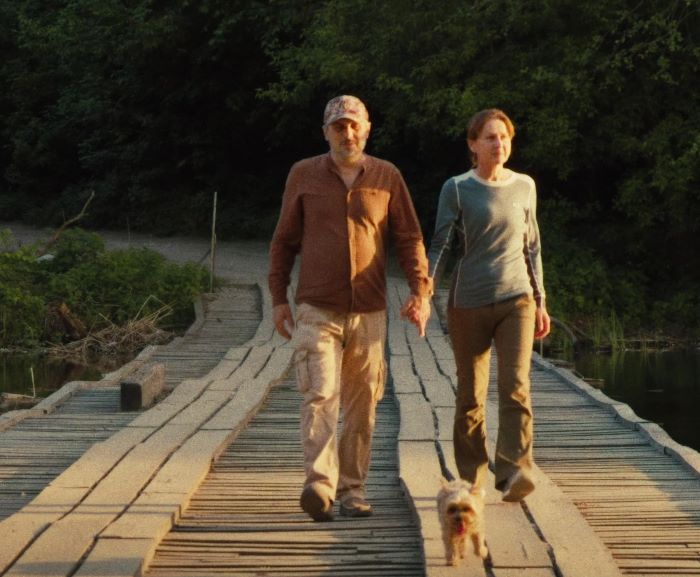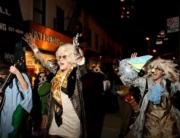Earlier this year, 20 Days in Mariupol, one of the most brutal and horrifying documentaries imaginable, won the Best Documentary Academy Award. As an eyewitness account of Russia’s invasion of the Ukrainian city, it features unflinching shots of corpses, explosions, grieving families, and hellish chaos. The plight of Ukraine is, of course, ongoing, and recent reports of a joint call to President Volodymyr Zelensky from President-elect Donald Trump and Elon Musk, along with Russian President Vladimir Putin’s reported pleasure at the U.S. election results, do little to encourage Ukrainians—or anyone else—that peace and freedom are just around the corner.
If 20 Days in Mariupol is a vision of suffering, Porcelain War, a new documentary centered on artists Sylva Leontyev and Anya Stasenko, seeks to celebrate resilience. The Ukrainian couple have known each other essentially since birth. They became a couple in art school, where they began collaborating on porcelain sculptures of animals and imaginary creatures—Sylva creates the sculptures, and Anya paints their surfaces. Porcelain, a material they describe as simultaneously fragile if broken deliberately yet durable through the ages, becomes a metaphor for their identity as Ukrainians in the resistance.
Porcelain War chronicles their heavily compromised existence in a rural area near Kharkiv from 2022 to 2023. Despite the horror encroaching on them, they persist in creating art. They walk in the woods, appreciate nature, and forage for mushrooms. Their walks often involve marking the locations of mines to ensure the community can safely collect mushrooms. Yet Sylva is also a soldier, training militias composed of civilians. Anya’s delicate painting sessions sometimes take place while Sylva ventures into war-torn Kharkiv, leaving her unsure if he will return.
The film is filled with shimmering shots of nature, animated sequences rendered on porcelain surfaces, calmly observed woodland walks, and moments of laughter despite the circumstances. Ukrainian music—both modern and traditional—forms the score, celebrating a culture under threat of erasure. Conversely, the offscreen sounds of war underscore these moments of fragile beauty. Footage of bombs being dropped from drones and a successful rescue of injured soldiers on the frontlines offers some of the most powerful sequences, illustrating how the act of truly living life becomes a form of defiance in dire circumstances.
Some interviews contain genuinely harrowing material, though not as dark as the content in 20 Days in Mariupol. For instance, Andrey Stefanov, an artist friend of Anya and Sylva who also shot much of this documentary, made the difficult decision to send his wife and daughters to Poland. The family reunites once during the film, unsure if they will ever be able to see each other again. Unlike Anya, Andrey finds himself unable to paint, his creative spirit stifled by the weight of the war.
Porcelain War affirms the value of living fully in the face of immense uncertainty and terror, presenting a compelling portrait of resilience. If it occasionally strikes a polemical tone or seems overly precious about the porcelain objects, the filmmakers can hardly be blamed: Putin is the kind of figure who inspires impassioned critiques. What is most heartbreaking, even depressing, about the documentary is the sense that there is perhaps even less hope now than when filming first began.







Leave A Comment